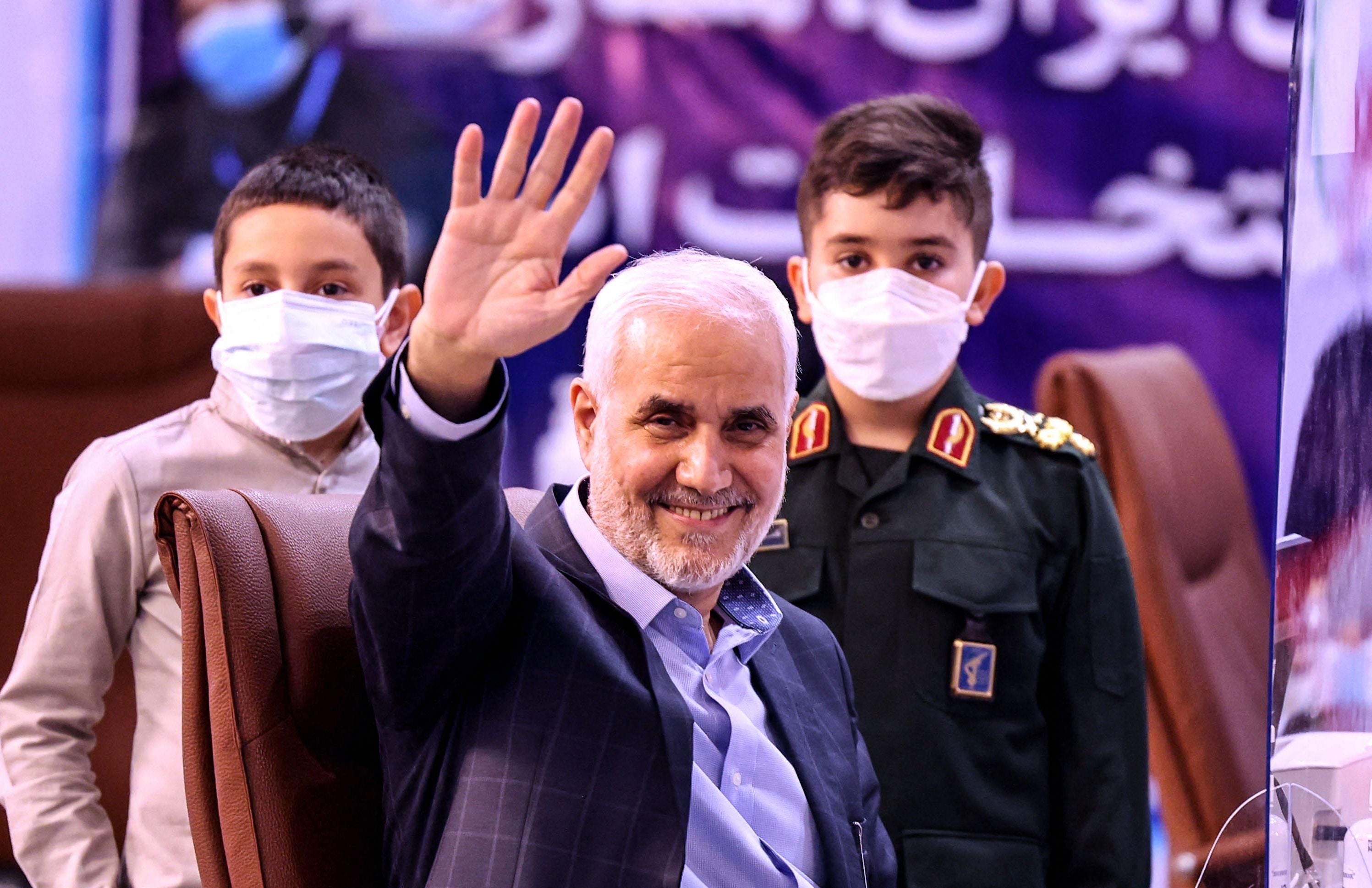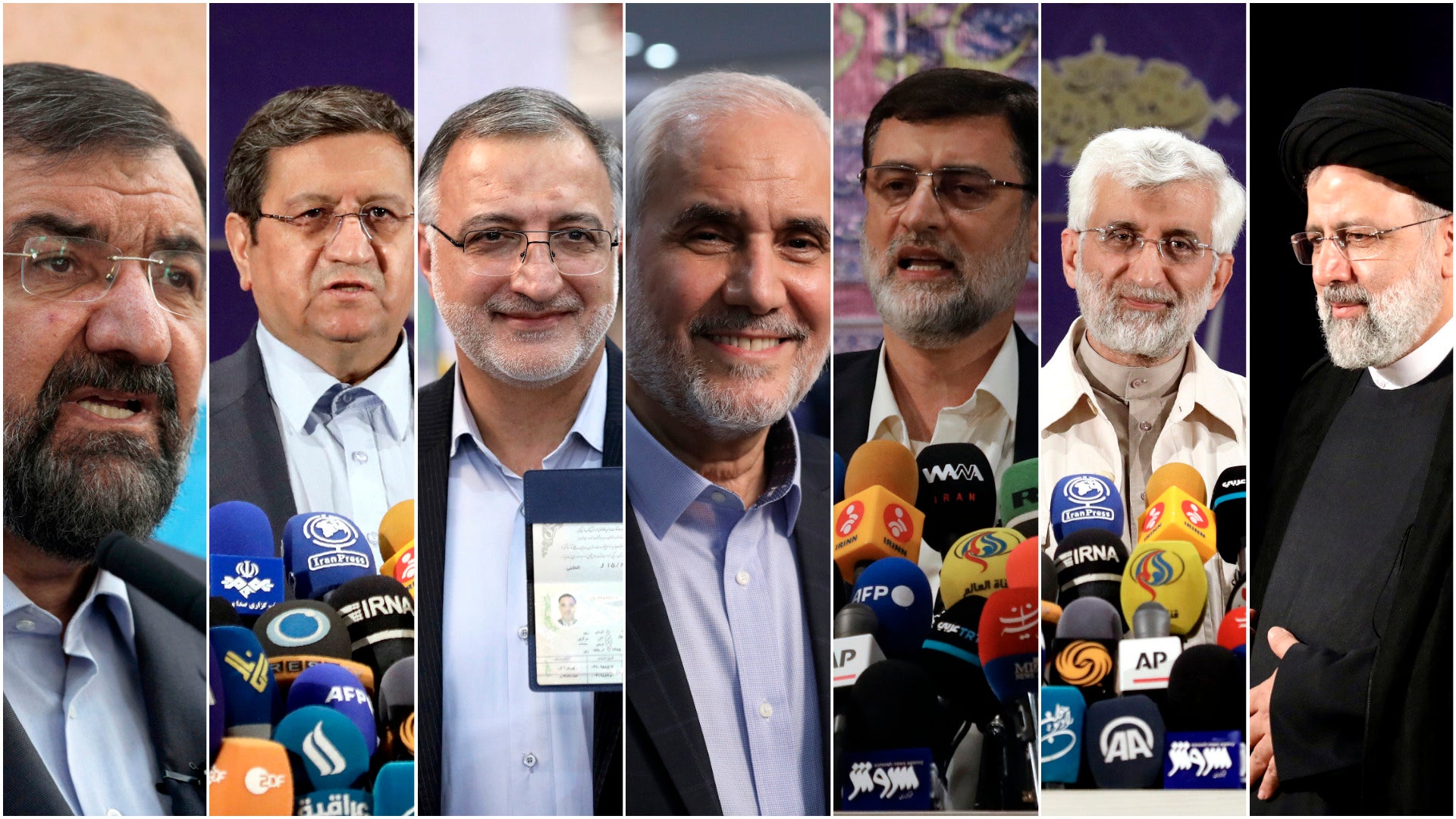Hardliners elevated, moderates excluded in race for Iranian presidency
Seven candidates have so far been chosen for June’s election

Iran’s powerful vetting council barred the former speaker of parliament and two prominent reformists from running for the country’s presidency during the 18 June elections. But it cleared the way for seven mostly hardline candidates that include judiciary chief Ebrahim Raisi, the favourite of the country’s Islamist establishment, to run for Iran’s top elected post.
Ali Larijani, who served for 12 years as speaker of Iran’s parliament, was barred from running as a president by the Council of Guardians, a commission of jurists and clerics tasked with vetting laws and nationals for purity to the ideals of the 1979 Islamic revolution.
Also excluded were the most prominent reformists, Eshaq Jahangiri, who is serving as a vice-president under president Hassan Rouhani, and Mostafa Tajzadeh, who was an official under former president Mohammad Khatami, who served as president from 1997 to 2005.
Mahmoud Ahmadinejad, a former hardline president who tried to refashion himself a “liberal democrat” in a recent magazine interview, was barred for the second time from running.
Mohsen Mehralizadeh, an obscure 64-year-old politician who served as minister of youth and sports under Mr Khatami and staged a failed bid for the presidency in 2005, has been approved to run, and for now will emerge as the standard-bearer for the reformists.
Iran’s political system is at heart a theocratic dictatorship run by the country’s supreme leader Ali Khamenei, but includes some elements of a democratic republic. At the very least, the presidency grants a seat at the table of power that includes the Revolutionary Guard and the intelligence and security services.
Some 596 candidates applied to run for president but the Council of Guardians agreed to vet no more than 40 of them, rejecting the others. The body is composed of aging hardline clerics and jurists appointed by Mr Khamenei and parliament, whose members are also vetted by the council. It has in recent years increased its interventions in rejecting candidates for national office and laws passed by parliament to establish the limits of the country’s political and social direction.
It is increasingly viewed as reflective of Mr Khamenei’s views. In recent years the supreme leader has elevated Mr Raisi, who ran and lost badly against the pragmatist Mr Rouhani in the 2017 elections. Many Iran watchers have assessed that the 82-year-old Khamenei is grooming the 60-year-old Raisi as his successor.
The Council of Guardian’s rejection of Mr Larijani prompted rare criticism from within the body. Ayatollah Sadeq Amoli-Larijani, a member of the council and Mr Larijani’s brother, criticised the disqualifications as “indefensible” in a Twitter post and pointed to the described “growing intervention of security organisations” in shaping the council’s decisions, suggesting the hardline Revolutionary Guard stepped in.
Mr Rouhani’s original 2013 election stunned many who were certain that a hardliner would replace Mr Ahmadinejad, whose anti-Semitic remarks and populist demeanor alienated the west and the Iranian middle class.
Mr Rouhani’s successes in both 2013 and 2017 were driven by last-minute social media campaigns that drew people to the polls and overwhelmed the country’s ruling clique of hardliners.
Iran’s constitution bars candidates from running for more than two consecutive terms, forcing Mr Rouhani to step down.

The other candidates allowed to run in 2021 suggest the establishment wants to avoid any such surprises.
They include Mohsen Rezaee, the secretary of the expediency council and a prominent conservative; Saeed Jalili, a former nuclear negotiator and colourless hardliner viewed as toxic by the west; Alireza Zakani, an outspoken hardliner who was disqualified from running in two previous elections; Amirhossein Ghazizadeh-Hashemi, a hardline member of parliament; and Abdolnaser Hemmati, governor of the Central Bank.
Typically, candidates whip up support from their narrow bases and drop out in the final days of the campaign, endorsing the front runner in their faction. With only one bona fide reformist in the mix, that will make the challenge of blocking a hardliner from taking the presidency more difficult.
Join our commenting forum
Join thought-provoking conversations, follow other Independent readers and see their replies
Comments